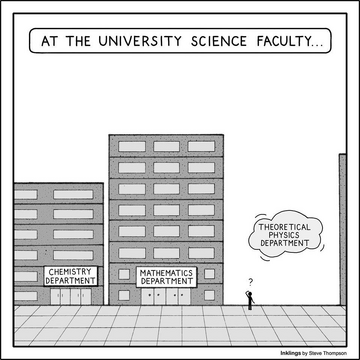smcder
Paranormal Adept
My view is that we don’t know, at all. Our perceptions are models of what-is. I think our models are very course grained. So we probably would leave stuff out.
The questions is levels though. If we can copy what we need at a course grained level, then we’re fine. If our course grain copying misses fine grained important stuff, then we’re not. We don’t know. I agree.
My argument is not about value. My argument is that a copy of the pattern is what’s important, not what the pattern is embodied in. A copy of a book from LOA is just as objectively valuable as the original.
The man is dying because he slipped on a banana peel.
It’s unethical for the same reasons murder is unethical.
I’d love to see someone make that argument in court.
It’s not unlike the joke about the man who approaches another man on the street and says: “hey bill, you’ve gotten taller. And shaved your head. You wear glasses now!”
“My name’s Sam!”
“I’ll be, you even changed your name!”
This is a very important problem and one that our dear technicians may not be able to overcome. I’m not sure that the direction and momentum of a quark in an atom in a molecule in a cell in an organ in a body can e copied. But then again I’m not sure it couldn’t.
Could a cup of hot coffee even be copied, yes, good question. It may turn out to be more complex in its own way then a brain.
It’s unethical for the same reasons murder is unethical.
Which are...? I argue that if we show a man is just matter, then we can reduce the charge to destruction of property (IF the defendant can show he owns it and provide an ethical basis for "property"...i.e. that matter matters)
I’d love to see someone make that argument in court.
Grouch Marx probably did.
Could a cup of hot coffee even be copied, yes, good question. It may turn out to be more complex in its own way then a brain.
What is certain is that someone on here will argue that we can make a good cup of coffee without understanding how!


